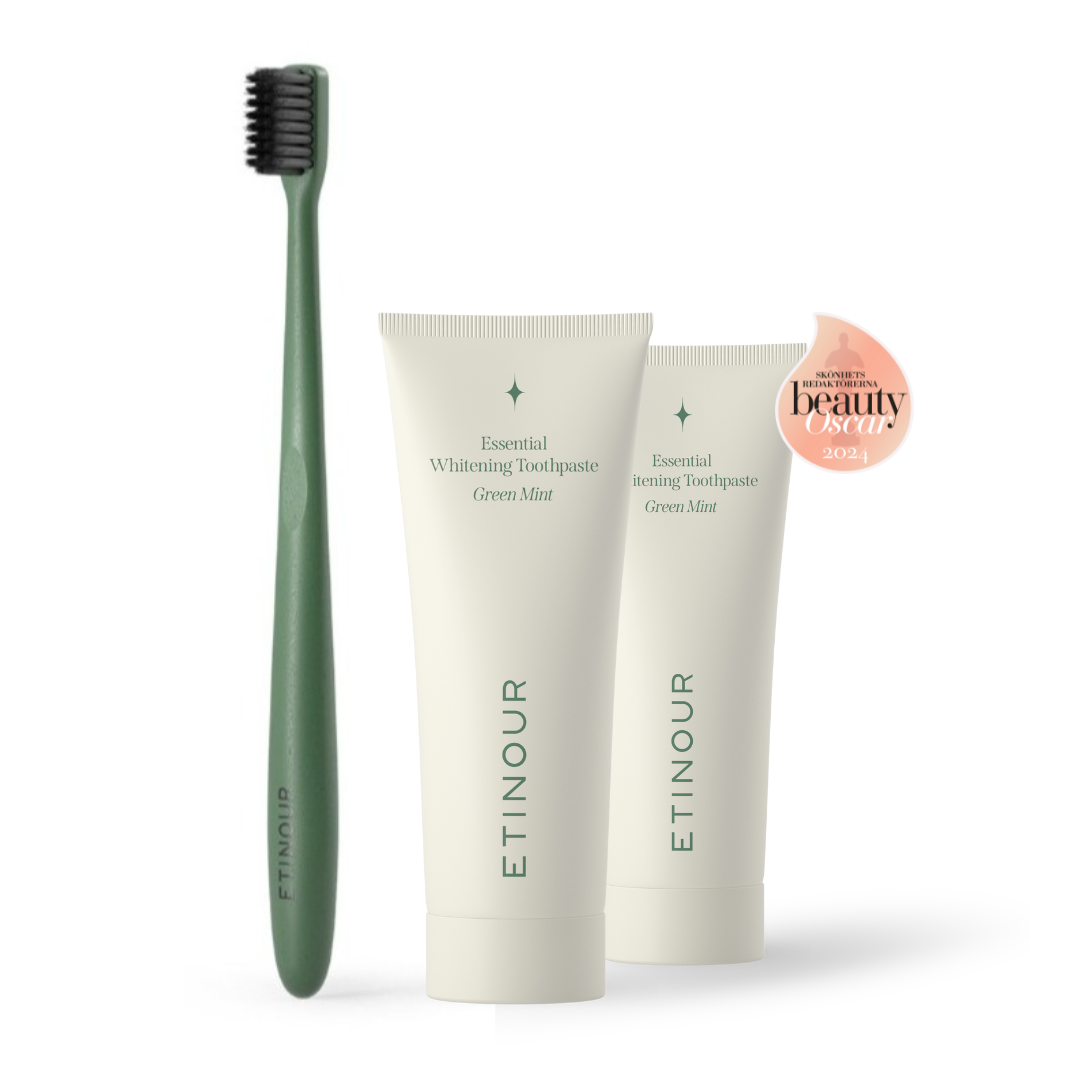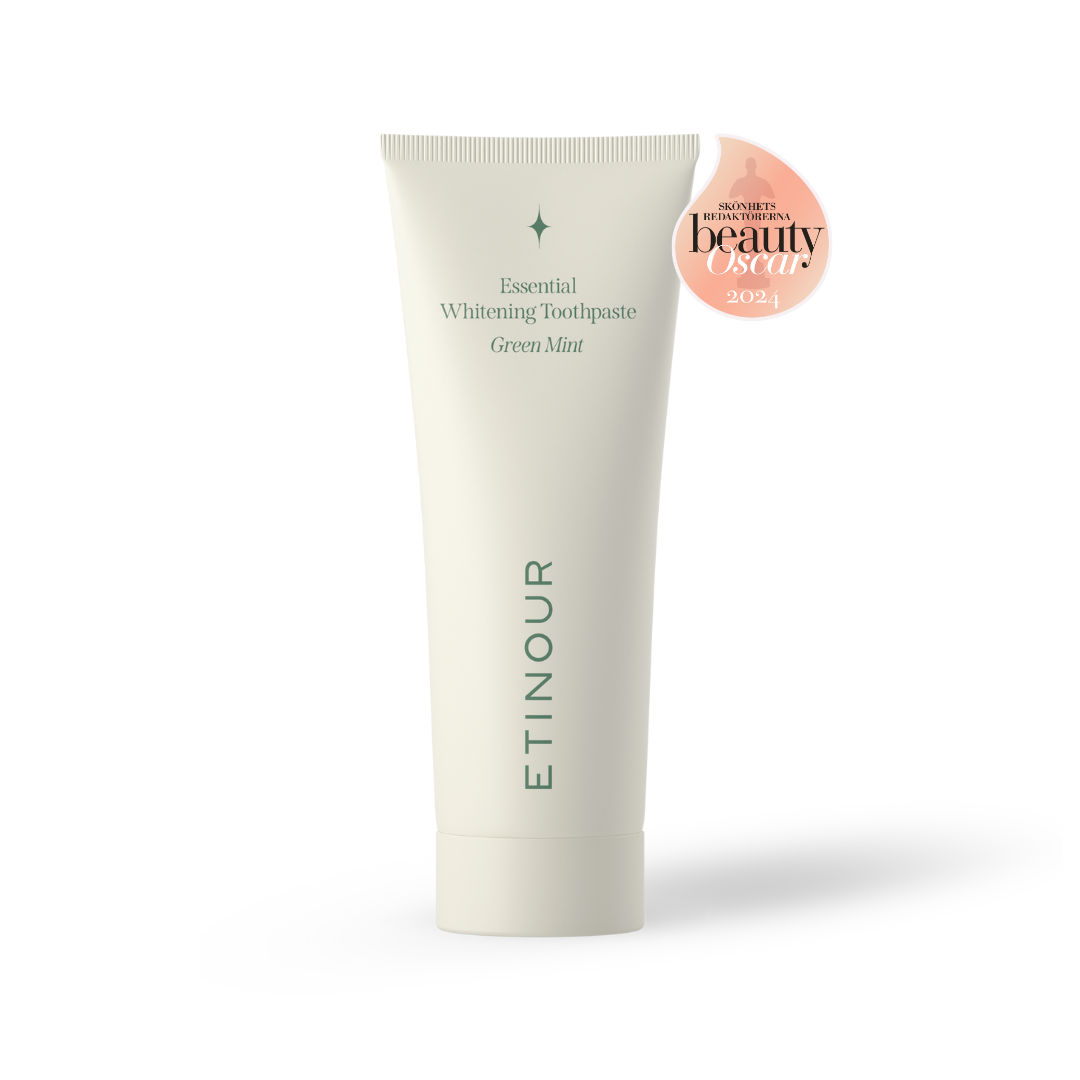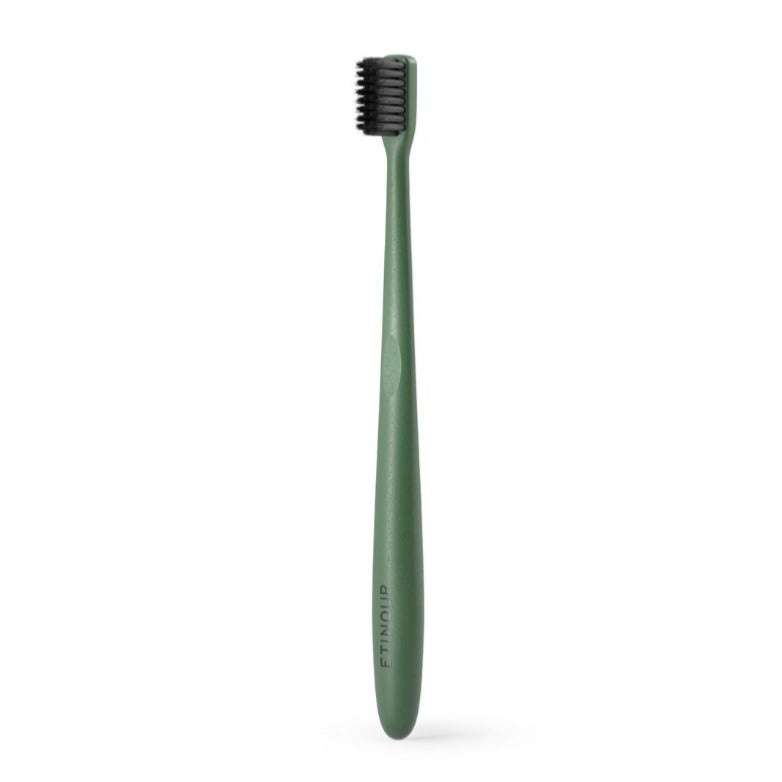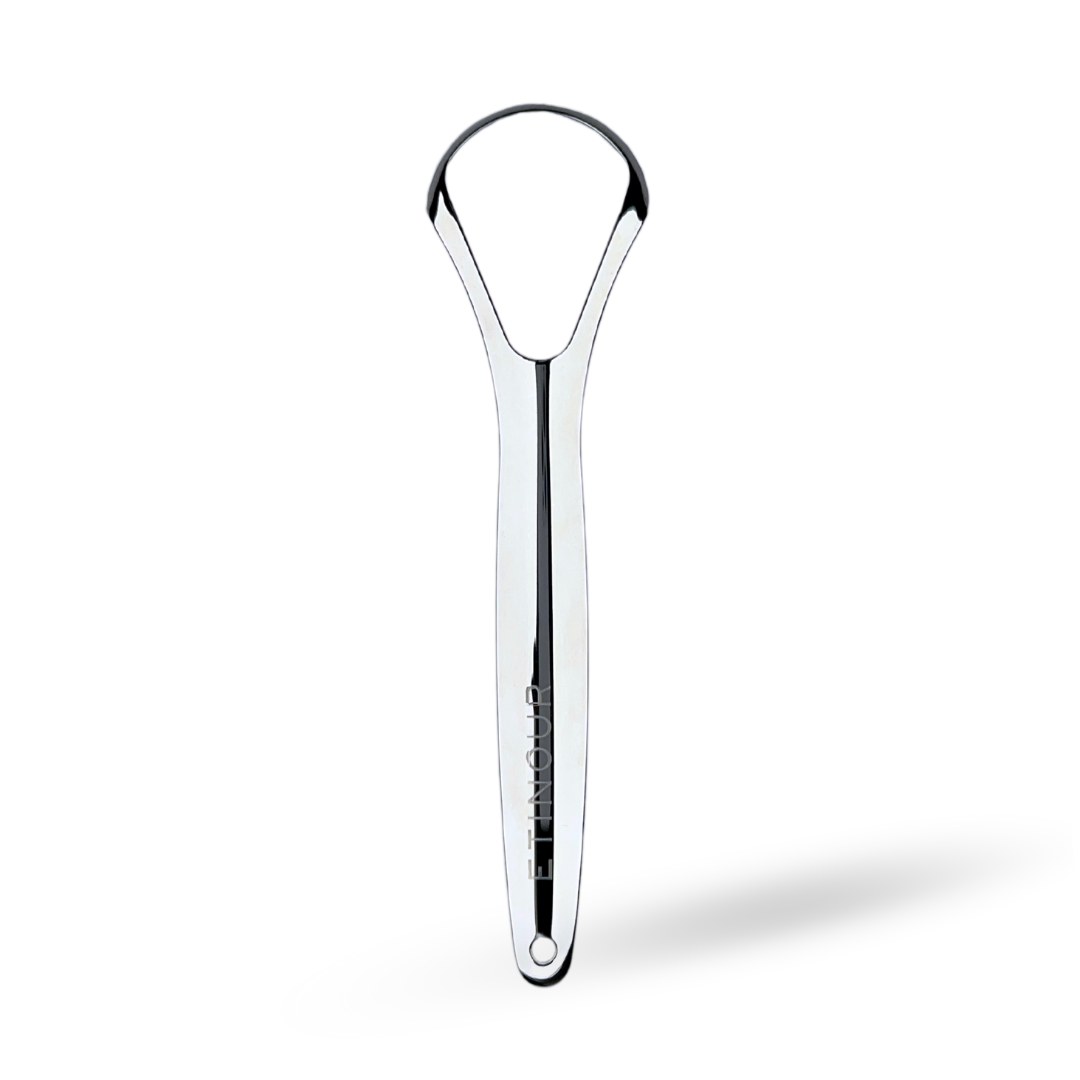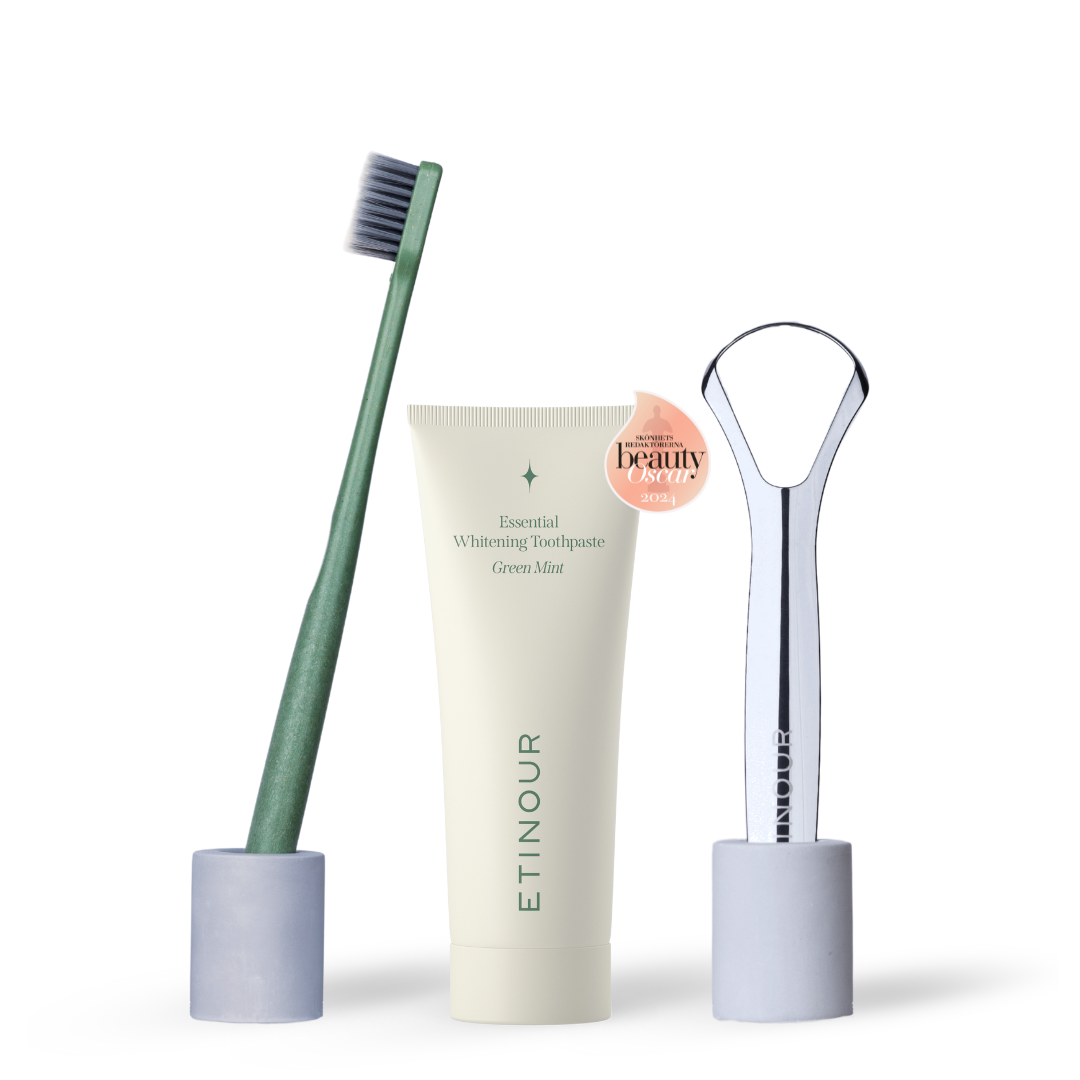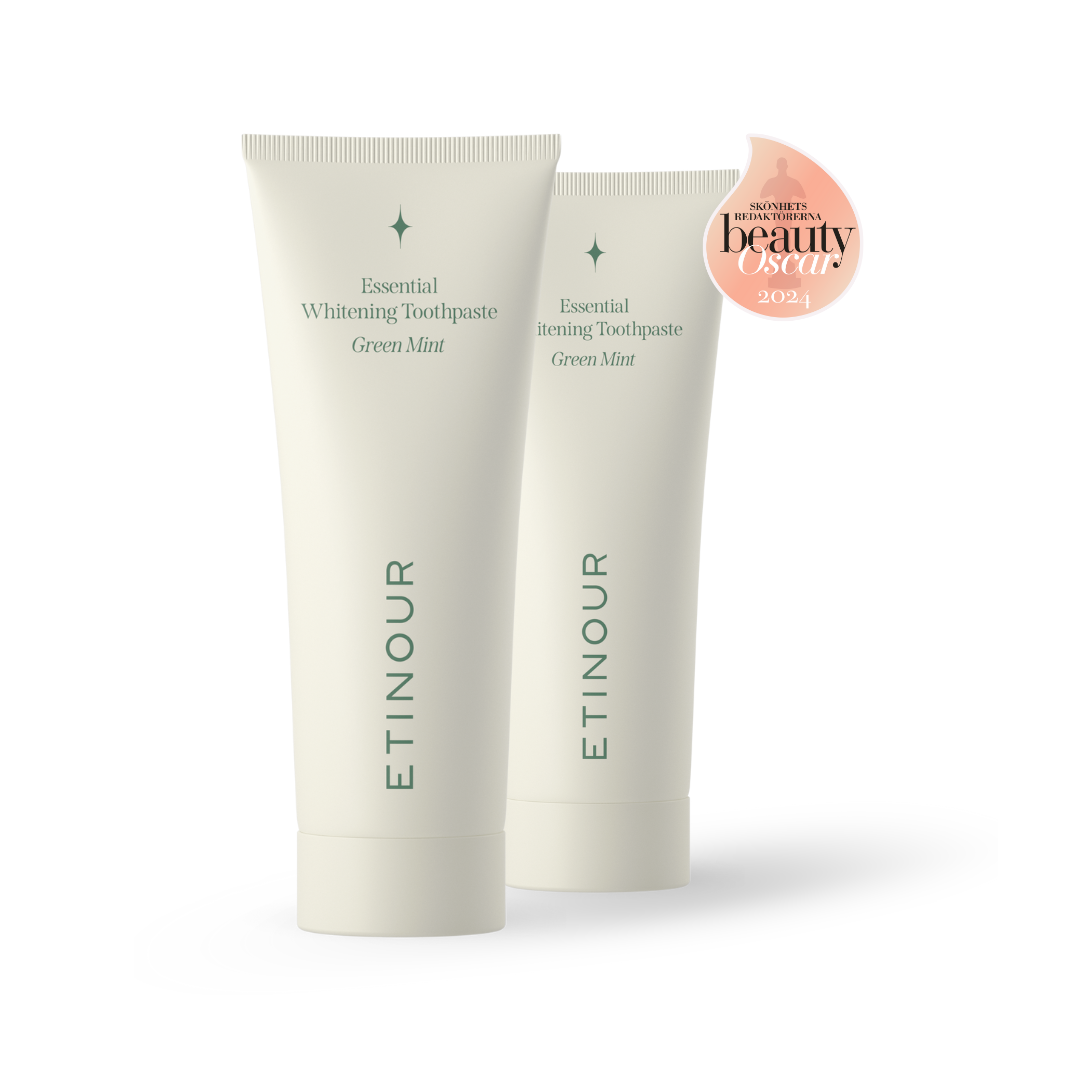When it comes to oral care, the real magic happens beneath the surface. A brighter smile and fresher breath are great, but the key lies in the science behind the ingredients. The right toothpaste doesn’t just clean—it protects, strengthens, and cares for your oral health, just like you’d expect a skincare routine to nourish your face.
Why Ingredients Matter in Toothpaste
Your toothpaste is more than just a daily essential; it’s a tool designed to enhance and safeguard your oral health. From gentle whitening and cavity prevention to gum care and desensitization, every ingredient plays a role. Choosing a formula with safe, effective, and science-backed components ensures that your smile gets the same thoughtful care as the rest of your body.
Many consumers are becoming more ingredient-conscious in every aspect of their lives—from skincare to household products. And oral care should be no different. The ingredients in your toothpaste can make or break the health of your teeth, gums, and overall mouth environment. But how can you tell what’s good and what’s harmful?
Let’s break down the key aspects of choosing the right toothpaste by looking at what ingredients are beneficial for oral health, and which ones should be avoided.
Beneficial Ingredients for Oral Health
Not all toothpaste ingredients are created equal. Many ingredients are carefully selected to promote healthier teeth and gums while improving overall oral hygiene. Below are some of the key ingredients to look out for when choosing your toothpaste.
1. Sodium Fluoride: A Well-Known Protector
Fluoride has long been a go-to ingredient in toothpaste for its ability to prevent tooth decay. It strengthens tooth enamel by promoting remineralization, essentially repairing the early stages of cavities before they become a problem. Fluoride also makes teeth more resistant to acid attacks from food and beverages.
While fluoride has been the subject of some controversy, most dental professionals agree on its effectiveness when used in the proper amounts. In fact, according to the American Dental Association (ADA), fluoride is one of the most well-studied and beneficial ingredients in oral care.2. Hydroxyapatite: The Enamel Restorer
Hydroxyapatite is a naturally occurring mineral in tooth enamel and bone, and when included in toothpaste, it helps to strengthen and repair tooth enamel. This ingredient is ideal for people with sensitive teeth or those concerned about enamel erosion. Hydroxyapatite also plays a crucial role in re-mineralizing teeth and improving their overall density. Unlike fluoride, which works primarily to prevent further decay, hydroxyapatite actively restores teeth that have begun to wear down, making it a key component for maintaining long-term oral health.3. Potassium Nitrate: A Sensitivity Soother
For many people, tooth sensitivity is an everyday struggle—whether it's triggered by hot coffee or a cold breeze. Potassium nitrate is a beneficial ingredient found in some toothpastes that helps to reduce this sensitivity. It works by calming the nerves within the tooth’s pulp, preventing the pain typically associated with exposure to extreme temperatures. This ingredient is often found in formulas designed for those with sensitive teeth and can significantly improve comfort while eating or drinking, making it an essential addition to any oral care routine.4. Hyaluronic Acid: Hydration for the Mouth
5. Jojoba Oil: The Gentle Soother
Jojoba oil is a natural oil extracted from the seeds of the jojoba plant. This ingredient is a fantastic addition to toothpaste because of its gentle, non-irritating properties. It has natural antibacterial properties that can help keep the mouth free from harmful bacteria, while also moisturizing and soothing sensitive tissues in the mouth. Jojoba oil adds a calming effect on the gums, reducing irritation and inflammation. In combination with other beneficial ingredients like hyaluronic acid, jojoba oil helps to promote a balanced and healthy oral ecosystem, preventing dryness and discomfort.
6. Zinc Acetate: The Bad Breath Fighter
Zinc acetate is a powerful ingredient that helps neutralize odor-causing compounds in the mouth. It’s often used in toothpaste to prevent bad breath and maintain long-lasting freshness. By inhibiting the production of sulfur compounds, which are typically responsible for foul odors, zinc acetate ensures your breath stays fresh throughout the day. This ingredient also has mild antimicrobial properties that help reduce plaque buildup on teeth, promoting healthier gums and preventing the formation of cavities. Zinc acetate is an excellent option for those looking to maintain oral health while tackling bad breath.

Harmful Ingredients to Avoid in Toothpaste
While many toothpaste ingredients offer essential benefits for your teeth and gums, there are some that can actually cause harm to your oral health over time. Let’s look at some of the worst offenders you should steer clear of when choosing your toothpaste.
1. Sodium Lauryl Sulfate (SLS): The Irritant
Sodium Lauryl Sulfate, commonly known as SLS, is a detergent and foaming agent used in many personal care products, including toothpaste. While it’s responsible for the foam we associate with brushing, SLS can be harsh on the delicate tissues of your mouth. It can cause irritation to sensitive gums, leading to discomfort and even canker sores in some individuals. For those with sensitive mouths or conditions like Burning Mouth Syndrome (BMS), SLS can exacerbate symptoms and cause significant irritation. If you have sensitivity issues, it’s best to opt for a toothpaste that is free from SLS.
The ingredient can also trigger PD (perioral dermatitis), cold sores, eczema and cause dry lips and skin around the mouth.
2. Titanium Dioxide: The Hidden Colorant
Titanium dioxide is commonly used as a whitening agent and a pigment to give toothpaste that bright, white appearance. While it’s generally recognized as safe by regulatory bodies, there are concerns about its long-term impact on health, particularly when it’s ingested. Some studies have raised questions about its potential as a carcinogen when consumed in large amounts. Even though the risk may be low, it’s better to err on the side of caution and avoid toothpaste containing titanium dioxide, especially if you prefer products that are free from unnecessary additives and colorants.3. Hydrogen Peroxide: The Bleach
Hydrogen peroxide is often included in toothpaste for its purported whitening effects. It works by breaking down stains on the surface of the teeth and in the dentin. However, the concentration of hydrogen peroxide allowed in toothpaste is typically too low to give a whitening result.
Over time, it can lead to tooth sensitivity and damage the protective layers of your teeth and gums. For a more gentle and long-term whitening solution, consider toothpaste with gentle whitening ingredients like PAP.
4. Parabens: The Preservative Problem
Parabens are a group of synthetic chemicals often used as preservatives in personal care products. They are commonly used in toothpaste to extend shelf life. However, parabens have been linked to hormone disruption and are suspected endocrine disruptors. While more research is needed, many people choose to avoid parabens altogether for the sake of their overall health and well-being. Choosing a toothpaste without parabens is a simple way to avoid potential risks and reduce exposure to harmful chemicals.5. Unnecessary Colorants: Aesthetic Additions with No Benefit
Many toothpastes contain artificial colorants to give them a more appealing appearance. However, these colorants serve no real purpose in terms of oral health and can sometimes contribute to irritation, particularly in people with sensitive gums. Additionally, these additives can be absorbed by your body, adding an unnecessary burden on your system. By opting for a natural toothpaste without these artificial colorants, you’re ensuring that what you’re putting in your mouth is both safer and more effective.
6. Palm Oil: The Unsustainable Ingredient
Palm oil is a controversial ingredient commonly found in personal care products, including toothpaste. While palm oil itself isn’t necessarily harmful to your oral health, the environmental impact of palm oil production is concerning. The widespread cultivation of palm oil has led to deforestation and a loss of biodiversity, making it a less-than-ideal choice for eco-conscious consumers. Choosing a toothpaste that avoids palm oil not only benefits your oral health but also supports more sustainable and ethical practices in the personal care industry.
Choosing the Right Toothpaste: The Science Behind Safe Ingredients
When selecting a toothpaste, it’s essential to strike the right balance between effectiveness and safety. You want a product that cleans your teeth, freshens your breath, and addresses your specific oral care needs without exposing your body to harmful chemicals. By opting for products that contain scientifically proven ingredients—like fluoride, hydroxyapatite, and potassium nitrate—you can ensure that your toothpaste is working in harmony with your body to support long-term oral health. Meanwhile, avoiding harmful ingredients such as SLS, titanium dioxide, and parabens ensures that your oral care routine is not inadvertently compromising your well-being. As more people become aware of the impact that ingredients can have on both their health and the environment, it’s important to choose products that reflect this mindset. Your toothpaste is one of the simplest but most effective ways to invest in your future health.

The Bottom Line: Invest in Your Smile with Safe, Effective Ingredients
In the world of oral care, not all ingredients are created equal. Whether you’re looking to improve your smile, reduce sensitivity, or simply maintain optimal oral hygiene, understanding the science behind your toothpaste’s ingredients is crucial. When you invest in a toothpaste that’s formulated with safe, effective ingredients, you’re not just taking care of your teeth—you’re investing in your long-term health. A toothpaste that strengthens enamel, promotes healthy gums, and avoids harmful additives is an investment in your future self, ensuring that your smile remains bright, strong, and healthy for years to come. Remember, your oral care routine is an important part of your overall well-being. Make it a habit to choose products that prioritize the health of both your teeth and the environment—because a healthy smile starts with the right ingredients.


